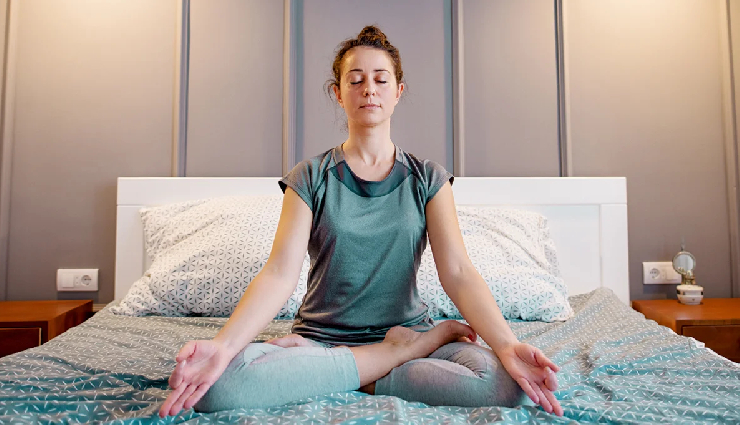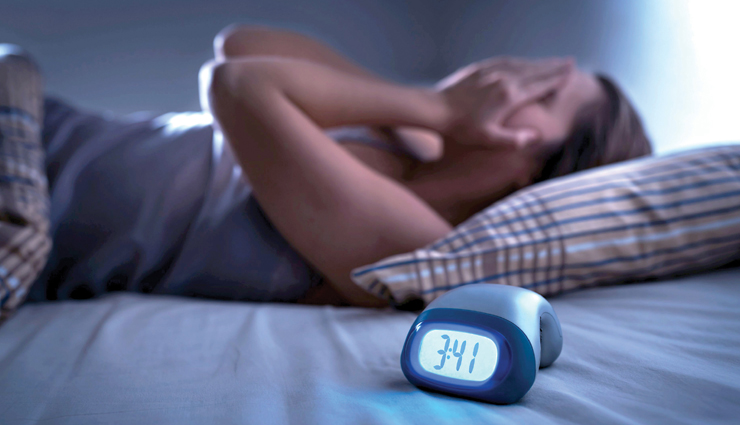- Home›
- Healthy Living›
- 13 Must Try Effective Remedies To Get Sound Sleep
13 Must Try Effective Remedies To Get Sound Sleep
By: Priyanka Maheshwari Mon, 18 Mar 2024 1:12:12

Sound sleep is a fundamental component of overall well-being, essential for maintaining physical health, cognitive function, emotional stability, and productivity. It is a natural state of rest characterized by reduced consciousness and bodily activity, allowing the body to repair, restore, and rejuvenate itself. Achieving sound sleep involves a complex interplay of physiological processes influenced by lifestyle habits, environmental factors, and individual characteristics.
Quality sleep consists of multiple cycles of non-rapid eye movement (NREM) and rapid eye movement (REM) sleep, each with distinct brainwave patterns and physiological functions. During NREM sleep, the body relaxes, repairs tissues, and strengthens the immune system, while REM sleep is associated with vivid dreams, memory consolidation, and emotional regulation.
However, in today's fast-paced society, many individuals struggle to attain adequate and restorative sleep due to various factors such as stress, technology use, irregular schedules, and poor sleep hygiene practices. Chronic sleep deprivation or poor sleep quality can lead to a myriad of health problems, including cognitive impairment, mood disorders, weakened immune function, and increased risk of chronic diseases like obesity, diabetes, and cardiovascular conditions.
Recognizing the importance of sound sleep, there is a growing emphasis on promoting healthy sleep habits and creating conducive sleep environments. This involves adopting consistent sleep schedules, establishing relaxing bedtime routines, optimizing sleep environments, managing stress effectively, and addressing underlying sleep disorders through medical intervention when necessary.

# Establish a Consistent Sleep Schedule: Try to go to bed and wake up at the same time every day, even on weekends. This helps regulate your body's internal clock.

# Create a Relaxing Bedtime Routine: Engage in calming activities before bedtime, such as reading a book, taking a warm bath, or practicing relaxation exercises like deep breathing or meditation.

# Limit Screen Time: Reduce exposure to screens (phones, computers, TVs) at least an hour before bedtime, as the blue light emitted can disrupt your sleep-wake cycle.

# Maintain a Comfortable Sleep Environment: Make sure your bedroom is conducive to sleep by keeping it cool, dark, and quiet. Invest in a comfortable mattress and pillows.

# Watch Your Diet: Avoid heavy meals, caffeine, and alcohol close to bedtime, as these can interfere with your ability to fall asleep and stay asleep.

# Exercise Regularly: Engage in regular physical activity, but avoid vigorous exercise close to bedtime, as it may energize you rather than help you wind down.

# Limit Naps: While short naps can be beneficial, especially if you're sleep-deprived, try to limit them to no more than 20-30 minutes and avoid napping late in the day.

# Manage Stress: Practice stress-reduction techniques such as mindfulness, yoga, or progressive muscle relaxation to help calm your mind before bedtime.

# Use Aromatherapy: Certain scents like lavender have been shown to promote relaxation and improve sleep quality. You can use essential oils or sachets in your bedroom.

# Herbal Remedies: Herbal teas like chamomile or valerian root tea may help promote relaxation and improve sleep quality. However, consult with a healthcare professional before trying any new herbal remedies, especially if you have underlying health conditions or are taking medications.

# White Noise or Relaxing Sounds: Some people find it helpful to use white noise machines or listen to soothing sounds like ocean waves or rain to block out distracting noises and promote relaxation.
# Journaling: If racing thoughts keep you awake at night, try keeping a journal by your bedside to jot down your thoughts or worries before bedtime, helping to clear your mind.

# Avoid Clock Watching: Constantly checking the time can increase anxiety about not being able to fall asleep, making it even harder to do so. Consider removing clocks from view or turning them away from you at night.





